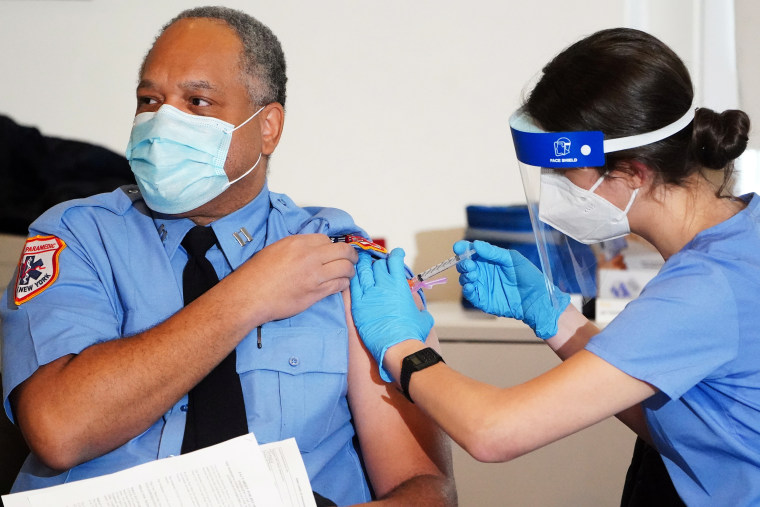The Pfizer and Moderna Covid-19 vaccines are extremely effective in the real world, reducing infections by 90 percent in fully vaccinated people, the Centers for Disease Control and Prevention reported Monday.
CDC Director Dr. Rochelle Walensky called the study "tremendously encouraging" in a briefing Monday, adding that it "underscored the importance of getting both of the recommended doses of the vaccine in order to get the greatest level of protection against Covid-19, especially as our concerns about variants escalate."
Full coverage of the coronavirus outbreak
The findings are the first real-world data from the United States, and are in line with similar research from other countries. A study from Israel recently found the Pfizer vaccine to be 97 percent effective in preventing Covid-19, including severe disease and death.
The CDC study included 3,950 people in the U.S. who received either the Pfizer-BioNTech or Moderna vaccine during the height of country's winter surge, from mid-December to mid-March. All were essential workers, including health care personnel and first responders from six states: Arizona, Florida, Minnesota, Oregon, Texas and Utah.
Two weeks after participants received both of the recommended doses, their risk of SARS-CoV-2 infection was reduced by 90 percent. (People are considered fully vaccinated two weeks after they received their final dose.)
Even the first dose had an effect, reducing infection risk by 80 percent, the study found.
Importantly, the research also showed that both vaccines not only prevent people from getting sick with Covid-19, they also help prevent asymptomatic infections, in which people never develop symptoms.
Download the NBC News app for full coverage of the coronavirus outbreak
Public health officials view Covid-19 vaccines as the best way to end the worst of the pandemic, particularly as a growing number of states relax restrictionsand lift mask mandates.
Just over 140 million Covid-19 vaccine doses have been administered. More than 51 million Americans have been fully vaccinated.
But that leaves many Americans still vulnerable to Covid-19, and Walensky issued an urgent warning Monday as cases are once again on the rise. The average number of daily Covid-19 cases is just under 60,000 — a 10 percent increase from the previous week. The numbers of hospitalizations and deaths have also risen in recent weeks, but not as dramatically.
“I so badly want to be done, I know you all so badly want to be done," Walensky said during the briefing. "We're just almost there, but not quite yet. And so I'm asking you to just hold on a little longer to get vaccinated when you can, so that all of those people that we all love will still be here when this pandemic ends.”
She continued, speaking frankly: "I'm going to reflect on the recurring feeling I have of impending doom. We have so much to look forward to, so much promise and potential of where we are, and so much reason for hope. But right now I'm scared."
CORRECTION (March 30, 2021, 10:18 a.m. ET): A previous version of this article misstated how many people in the U.S. have received at least one dose of a Covid-19 vaccine. As of Tuesday, 95 million people in the U.S. have gotten at least one dose, according to the CDC, not over 140 million people (the number of total doses administered: first and second shots of Pfizer and Moderna, and single-dose-only of Johnson & Johnson).
Follow NBC HEALTH on Twitter & Facebook.


